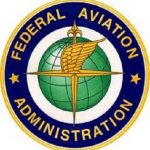If you find you are the target of an unauthorized charter investigation and it appears the FAA inspectors are willing to work with you using a compliance action (rather than go after you with legal enforcement action), here are a few suggestions for working through the process with the FAA.
Initially, it is important to confirm that the FAA is, in fact, offering to resolve the alleged violations through a compliance action. A compliance action is an informal resolution where the alleged violation resulted from flawed procedures, simple/honest mistakes, or a lack of understanding. To qualify for resolution of a violation, you must (1) acknowledge the alleged violations, and (2) be willing and able to comply with the regulations.
Understandably, the first requirement can be frustrating. However, if the matter will be handled as a compliance action, the FAA will require you to acknowledge the violations. Depending upon the inspector(s) involved, an outright admission may be required without qualifications, rather than what would otherwise be a carefully worded acknowledgment without specifically admitting to alleged violations. That can be a fine line to walk.
Next, the FAA will want to collect data on the non-compliant flights, including information on pilots and customers, as well as invoices and payment information for the past five years. While this may seem intrusive, full disclosure will ensure that all non-compliant flights will be included in the compliance action and cannot later be the basis for enforcement action, assuming the compliance action is completed to successful resolution.
Once the disclosures are completed and accepted by the FAA, a root cause analysis will need to be made to identify the casual factors for the non-compliance. What is a “root cause” analysis? This is the determination of how and why the alleged violations occurred.
In the unauthorized charter context, the “root cause” usually includes some degree of simple/honest mistakes and/or a lack of understanding. This is not surprising since the FAA has not done a very good job of educating airmen or the public regarding what is and isn’t considered unauthorized charter. And complicating the matter is that these situations are very fact dependent.
 A corrective action plan must then be formulated stating all actions that have been or will be taken to return to compliance and to ensure future compliance. The corrective action plan must also include a means of verification that will permit the FAA to verify continued compliance for some specified period of time into the future.
A corrective action plan must then be formulated stating all actions that have been or will be taken to return to compliance and to ensure future compliance. The corrective action plan must also include a means of verification that will permit the FAA to verify continued compliance for some specified period of time into the future.
The FAA may also require an education component in connection with the compliance action where aircraft owners, operators, lessees, and pilots involved in the situation are provided information to educate the parties on the regulatory requirements and methods of compliance. In the unauthorized charter context, the FAA may want the parties to review the following information:
-
FAA Advisory Circular AC 120-12(a) – Private Carriage Versus Common Carriage of Persons or Property;
-
Advisory Circular AC 91.37(b) – Truth in Leasing; and
-
A link to FAA’s Safe Air Charter Toolkit.


